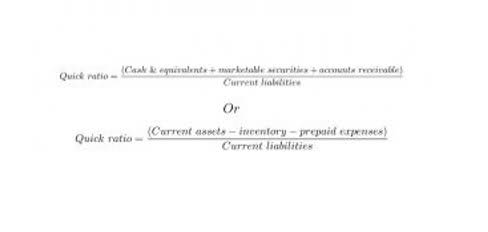
In conclusion, outstanding checks can pose risks to your financial stability if not properly managed. Stay proactive in tracking and reconciling your accounts, communicate with recipients, and leverage the benefits of online banking tools. With these measures in place, you’ll be better equipped to navigate the complex world of outstanding checks and keep your finances in order. If canceled checks (a company’s checks processed and paid by the bank) are returned with the bank statement, compare them to the statement to be sure both amounts agree. Outstanding checks are those issued by a depositor but not paid by the bank from which they are drawn.
Consider Alternative Payment Methods
Additionally, banks may have policies regarding check validity periods and fees for processing stale checks. To stay compliant, it’s important to familiarize yourself with the relevant regulations in your jurisdiction. During this time, the outstanding check is still liable for the issuer’s account balance. If the payee doesn’t deposit the check right away or if it gets lost, stolen, or destroyed before being cashed, the check remains outstanding indefinitely. This can lead to complications when reconciling accounts and maintaining accurate financial records. Void checks require careful documentation and accounting adjustments to maintain accurate financial records.
Financial Literacy Matters: Here’s How to Boost Yours
On July 31, 2023, BestBooks Store receives its bank statement, which shows a balance that is $500 higher than its own records, since the $500 check has not yet cleared. When BestBooks Store reconciles its bank statement, it must account for this outstanding check to make its books align with the bank statement. Qualifying accounts can even access their paycheck up to two days early. Businesses dealing in goods trade involve the transportation of goods. They may face delays or degradation if not delivered on time and, hence, must ensure that the payor or check issuer keeps the amount available for clearing the yet-to-be-presented check at the bank.
Outstanding Check: Definition, Risks, And Ways To Avoid
- While there are many risks with outstanding checks, there are simple steps you can take to avoid them.
- Additionally, banks may have policies regarding check validity periods and fees for processing stale checks.
- Business owners know that outstanding checks might take weeks or months to get cashed.
- From July 25 to August 1, the $500 check is considered an “outstanding check” from the perspective of BestBooks Store.
This should provide real-time information about the total dollar amount of checks outstanding and the total dollar balance present in the account. Checks that remain https://www.bookstime.com/personal-bookkeeping outstanding for long periods of time cannot be cashed as they become void. Some checks become stale if dated after 60 or 90 days, while others become void after six months.
- These standards could impact the way a payee reports an outstanding check on their financial statements until it has been deposited and cleared.
- In the bank reconciliation, the unpresented or outstanding check is deducted from the balance per the bank in order to arrive at the adjusted or corrected balance per bank.
- This act establishes different rules depending on whether the check is collected or non-collected funds, and it provides various deadlines for check clearance based on deposit type, size, and location.
- An uncashed check can distort these projections, causing businesses to misjudge their financial position.
- When you write a check, you authorize your bank to transfer funds from your account to another party’s account upon presentation of the check by that party to their bank.
If the Check Is Less Than Six Months Old
When the payee deposits the check at a bank, it requests the funds from the payor’s bank, which, in turn, withdraws the amount from the payor’s account and transfers it to the payee’s bank. When the bank receives the full amount requested, it deposits it into the payee’s account. An unpresented cheque is a check that a company has written, but the check has not yet been paid by the bank on which it is drawn.

Account
Be sure to check the terms and conditions of these arrangements carefully. Furthermore, checks that go unclaimed for extended periods become “stale,” which means they may be subject to voiding by either the payor’s or payee’s bank due to expiration dates or legal requirements. In the United States, for instance, a check becomes stale after six months unless it carries an explicit “do not expire” an outstanding check is one that has been issued but not yet reported on a bank statement. clause. Because the check written for a payee has not yet been presented to the bank for clearance, the company’s funds will reflect a deduction, but the bank balance will remain unchanged.
Outstanding Check: Definition, Risks, and Ways to Avoid

Unclaimed property obligations add another layer of complexity to managing outstanding checks. State-specific escheatment laws require businesses to report and remit unclaimed financial assets, such as uncashed checks, after a set dormancy period. While the Uniform Unclaimed Property Act provides a general framework, the specifics, such as dormancy periods, vary by state.

You can also call or write to remind the payee that the check is outstanding. If they haven’t received the payment, this may nudge them to notify you to reissue the check. There are actually some benefits to have contra asset account checks outstanding as well, though. Writing checks makes it possible for organizations and individuals to make payments without requiring instantaneous cash or electronic transactions to be completed.
From there, you can confirm whether or not the check has been processed. Alternatively, you can contact your bank directly with the check number and ask them to confirm. Lastly, you can contact the recipient of the check and ask them to confirm whether they have deposited or cashed the check.
